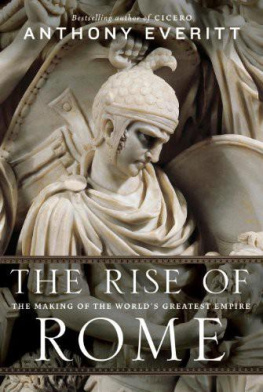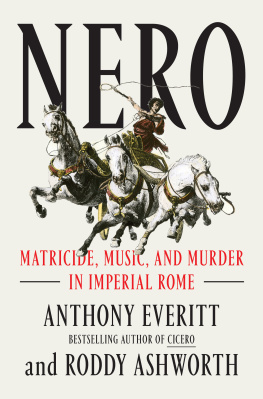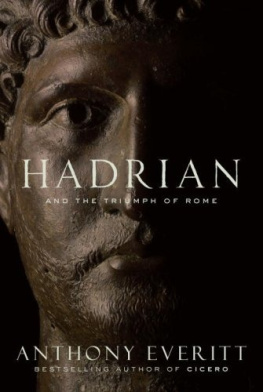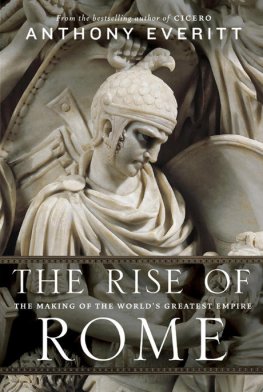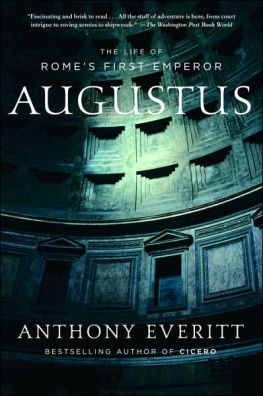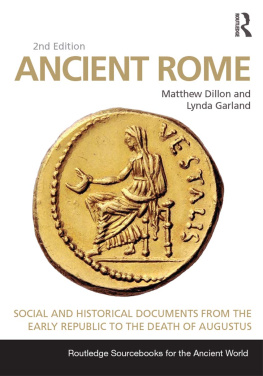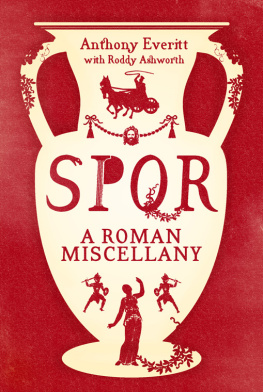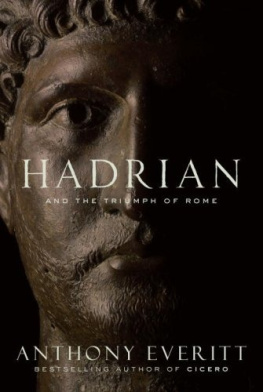Anthony Everitt - The Rise of Rome: The Making of the Worlds Greatest Empire
Here you can read online Anthony Everitt - The Rise of Rome: The Making of the Worlds Greatest Empire full text of the book (entire story) in english for free. Download pdf and epub, get meaning, cover and reviews about this ebook. year: 2012, publisher: Random House, genre: History. Description of the work, (preface) as well as reviews are available. Best literature library LitArk.com created for fans of good reading and offers a wide selection of genres:
Romance novel
Science fiction
Adventure
Detective
Science
History
Home and family
Prose
Art
Politics
Computer
Non-fiction
Religion
Business
Children
Humor
Choose a favorite category and find really read worthwhile books. Enjoy immersion in the world of imagination, feel the emotions of the characters or learn something new for yourself, make an fascinating discovery.
- Book:The Rise of Rome: The Making of the Worlds Greatest Empire
- Author:
- Publisher:Random House
- Genre:
- Year:2012
- Rating:3 / 5
- Favourites:Add to favourites
- Your mark:
The Rise of Rome: The Making of the Worlds Greatest Empire: summary, description and annotation
We offer to read an annotation, description, summary or preface (depends on what the author of the book "The Rise of Rome: The Making of the Worlds Greatest Empire" wrote himself). If you haven't found the necessary information about the book — write in the comments, we will try to find it.
From Anthony Everitt, the bestselling author of acclaimed biographies of Cicero, Augustus, and Hadrian, comes a riveting, magisterial account of Rome and its remarkable ascent from an obscure agrarian backwater to the greatest empire the world has ever known.
Emerging as a market town from a cluster of hill villages in the eighth and seventh centuries B.C., Rome grew to become the ancient worlds preeminent power. Everitt fashions the story of Romes rise to glory into an erudite page-turner filled with lasting lessons for our time. He chronicles the clash between patricians and plebeians that defined the politics of the Republic. He shows how Romes shrewd strategy of offering citizenship to her defeated subjects was instrumental in expanding the reach of her burgeoning empire. And he outlines the corrosion of constitutional norms that accompanied Romes imperial expansion, as old habits of political compromise gave way, leading to violence and civil war. In the end, unimaginable wealth and power corrupted the traditional virtues of the Republic, and Rome was left triumphant everywhere except within its own borders.
Everitt paints indelible portraits of the great Romansand non-Romanswho left their mark on the world out of which the mighty empire grew: Cincinnatus, Romes George Washington, the very model of the patrician warrior/aristocrat; the brilliant general Scipio Africanus, who turned back a challenge from the Carthaginian legend Hannibal; and Alexander the Great, the invincible Macedonian conqueror who became a role model for generations of would-be Roman rulers. Here also are the intellectual and philosophical leaders whose observations on the art of government and the good life have inspired every Western power from antiquity to the present: Cato the Elder, the famously incorruptible statesman who spoke out against the decadence of his times, and Cicero, the consummate orator whose championing of republican institutions put him on a collision course with Julius Caesar and whose writings on justice and liberty continue to inform our political discourse today.
Romes decline and fall have long fascinated historians, but the story of how the empire was won is every bit as compelling. With The Rise of Rome, one of our most revered chroniclers of the ancient world tells that tale in a way that will galvanize, inform, and enlighten modern readers.
Praise for The Rise of Rome
Fascinating history and a great read.Chicago Sun-Times
An engrossing history of a relentlessly pugnacious citys 500-year rise to empire.Kirkus Reviews
Romes history abounds with remarkable figures. . . . Everitt writes for the informed and the uninformed general reader alike, in a brisk, conversational style, with a modern attitude of skepticism and realism.The Dallas Morning News
[A] lively and readable account . . . Roman history has an uncanny ability to resonate with contemporary events.Macleans
Elegant, swift and faultless as an introduction to his subject.The Spectator
[An] engaging work that will captivate and inform from beginning to end.Booklist
Anthony Everitt: author's other books
Who wrote The Rise of Rome: The Making of the Worlds Greatest Empire? Find out the surname, the name of the author of the book and a list of all author's works by series.

